Caring for stray animals within a community is more than a mere humanitarian gesture; it’s an indispensable commitment that aligns with the core values of compassion and responsibility, and these sentiments are echoed through the journey of Sejahtera Community (Sejahtera).
Born from a poignant incident depicted in a photograph from Tutong Beach, published by the Bulletin in 2019, one of the two founding members of Sejahtera Pengiran Nooraini binti Pengiran Ahmad, recalled the unsettling scene.
The photograph featured a live puppy alongside a lifeless companion, prompting the founder to question the prevalence of such a disturbing scene in the otherwise tranquil landscapes of Brunei.
The moment served as the catalyst for Sejahtera to address and rectify distressing conditions faced by animals in the country.
Pengiran Nooraini shared that observing or hearing about incidents such as that in other countries might be commonplace, but witnessing such occurrences in Brunei, as depicted in that specific photograph, was both shocking and disheartening. “We should not allow these kinds of behaviours to happen in the country,” said Pengiran Nooraini.
This marked the beginning of Sejahtera’s engagement authorities, and through fruitful discussions, the non-government organisations (NGO) was successful in securing a piece of land for the stray animals.
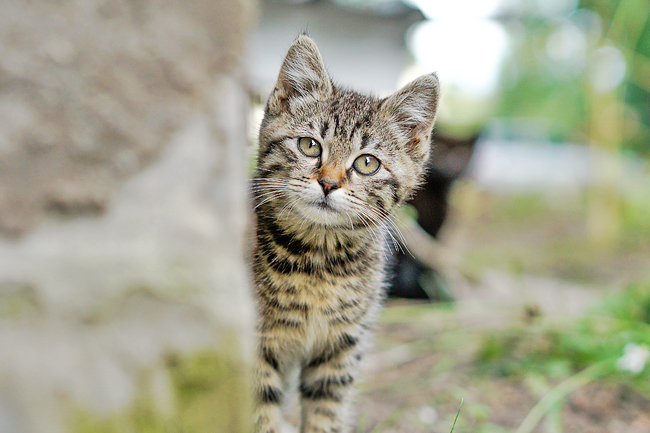
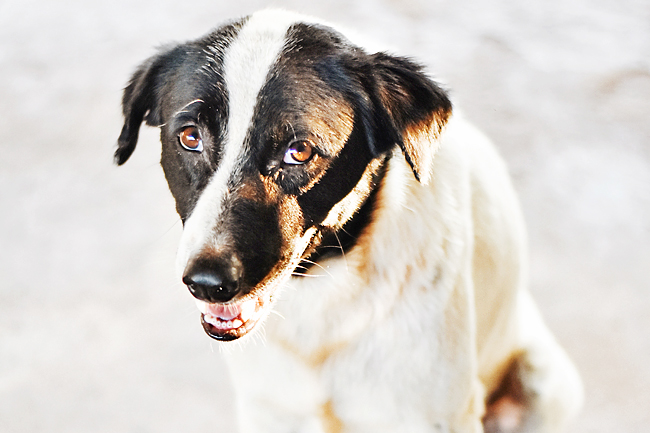
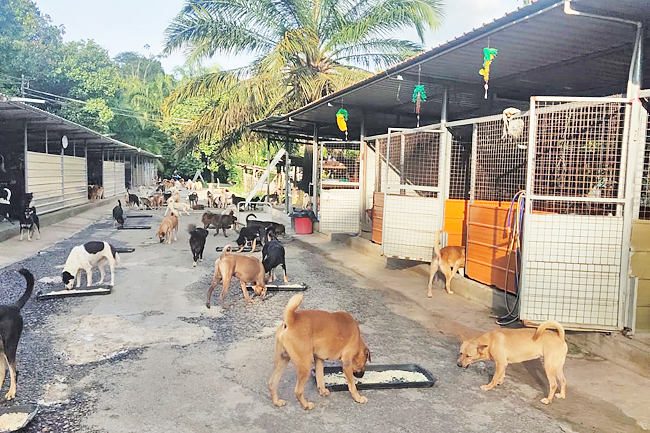
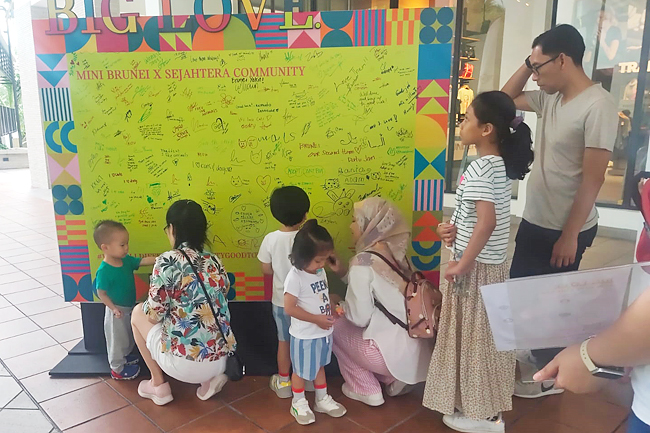
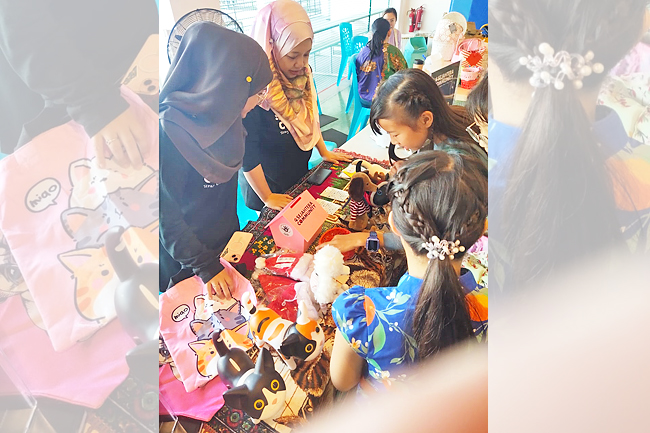
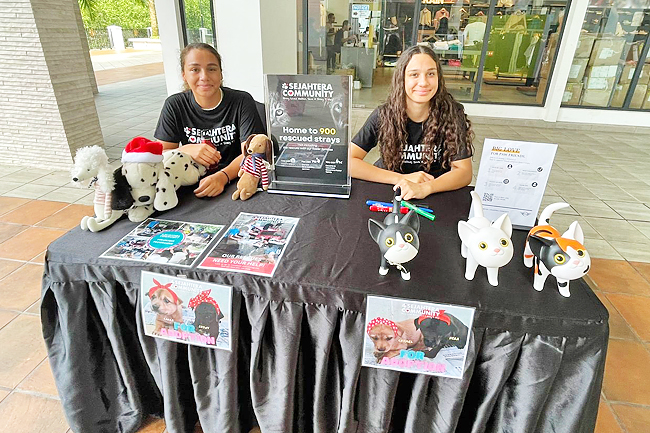
COMPASSIONATE FOUNDATIONS
In the broader canvas of compassion, NGOs like Care & Actions for Strays (CAS) that emerged as a pioneer for strays, followed closely by the establishment of Sejahtera and PawsUp, reflect the collective empathy and conscientiousness within the community.
However, the commitment to caring for stray animals transcends organisational boundaries.
As unsung heroes, these NGOs along with private individuals navigate the alleys of compassion for stray cats and dogs, dedicate themselves to rescuing, nurturing, and providing veterinary care for these vulnerable creatures.
Their selfless actions, often veiled in anonymity, underscore the profound commitment of the community to making a positive impact.
NGOs, including Sejahtera, serve the community, emphasising that it is not only acceptable but commendable for everyone to contribute in any capacity to alleviate the plight of stray animals.
Since its inception, Sejahtera has encountered numerous compassionate individuals who quietly contribute their efforts to this shared cause.
BEAUTY OF ISLAM
Pengiran Nooraini, however, said the core ethos of the NGO revolves around dispelling misconceptions, especially within our predominantly Malay Muslim community.
“It is our mission to showcase the beauty of Islam, particularly in relation to the treatment of strays and animals,” she added, further explaining that central to this endeavour is challenging the prevailing belief that dogs are categorically haram.
“In our religion, they are deemed najis mughallazah, requiring specific handling practices.
Despite the nuanced distinction between haram and najis mughallazah, a persistent divide exists.”
Sadly, many still harbour the misconception that dogs are strictly forbidden, and the founder believes that the perception often hinders people’s efforts to engage with and assist these animals due to religious beliefs.
She said, “Our aim is to promote understanding, emphasising that there are acceptable ways to interact with dogs within the bounds of our faith.
“Islam basically encourages helping the lesser beings, to help those in need, and that includes animals.”
She believes that as a Muslim community, there’s a keen awareness of Islamic teachings, with a crucial reminder of the concept of ihsan.
“This principle, central to Islam, extends to the compassionate treatment of animals, emphasising the duty to help and care for them.
“The call is not just to understand Islam’s teachings but to embody ihsan in actions, particularly in extending kindness and assistance to the animal kingdom.”
Since the establishment of NGOs for strays, Pengiran Nooraini said there has been a shift in attitude from Malay Muslims. They are stepping up to support dogs, overcoming initial apprehension, as visible efforts of diverse NGOs are encouraging unity, prompting both Muslims and non-Muslims to join the cause.
However, challenges do still persist, particularly among Malays who harbour reservations about dogs, to which Sejahtera’s founder said, “That’s where we are trying to find a better platform to reach out to as many Bruneian Malays as possible.
“What’s key here is education, to tell and share to the Malay community that it is okay to help, feed and be friends with dogs – with limitations.”
ADDRESSING DOG ATTACKS
While there are those that may pose the argument of stray dogs attacking their pet cats, the animal activist explained that stray dogs usually don’t harm cats if fed properly.
Some may question the need to feed dogs, but she believes that dogs, like cats, need sustenance, and their behaviour can turn aggressive if hungry. Unlike cats, dogs rely more on human kindness, and to mitigate attacks, the solution is simple – feed the dogs.
In a personal example, Pengiran Nooraini shared that feeding stray dogs prevented any harm to co-existing cats at her own residence, emphasising the impact of responsible feeding on interspecies relations.
DUMPING DANGERS
Nevertheless, beyond the moral imperative lies a pragmatic consideration for the overall health and harmony of the community.
Neglected stray animals can pose a public health concern, contributing to the spread of diseases and unsettling the delicate ecological balance. A community’s character, defined not solely by prosperity but also by collective empathy, is reflected in its commitment to the well-being of all inhabitants.
The founder further shared Sejahtera’s emphasis on the urgent need for comprehensive animal welfare laws, as without enforceable legislation, the dumping of cats and dogs may increase, leading to health issues for both animals and humans.
Sejahtera faces significant challenges, notably the lack of enforcement in animal abuse cases despite existing laws in Brunei. Using the case of “Nine Lives” as an example, where cats were abused, the legal process has been pending since the near onset of the COVID-19 pandemic.
She believes that proper laws would prevent such harm as without government support, the impact on available space and resources for NGOs is severe, posing a threat to the nation’s aspirations under Brunei Vision 2035.
The call for support underscores the imminent 12-year timeline left to achieve these goals.
“As former United States president JF Kennedy said, ‘Ask not what your country can do for you – ask what you can do for your country’. That’s what I like to remind people,” said the activist.
“Complacency within the government needs to change. They need to be proactive.
“I think that’s the saddest bit, where people look up to the ministry for guidance and support, but at the same time, it is not being heard, especially from an NGO’s perspective.
“We understand that human safety comes first, but human safety can also impact the animals. Help the animals, and then this is how we can also create a positive impact on human well-being. They go hand-in-hand.”
CORPORATE COLLABORATION
MINI’s unexpected sponsorship during Sejahtera’s roadshow at One Riverside earlier this month was the realisation of its goal of securing corporate support for animal welfare, which may encourage more companies to initiate programmes on animal welfare.
“We’ve had AC Tubular, and now MINI, as our corporate collaborator, which is fantastic. and I think we need to have more support from private companies,” said Pengiran Nooraini. – Izah Azahari






